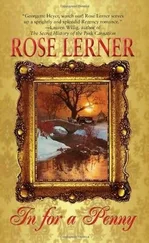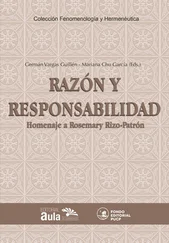* * *
Dear Ben , I deleted, Thank you for your kind invitation to contribute work to the first issue of your journal and for enclosing a poem of your own. Did Bronk even have e-mail? Probably not. He died in 1999. There are advantages in being a neglected writer but one doesn’t want to enjoy them entirely without relief, I had paraphrased from a letter he sent to Charles Olson in the early sixties, and so you were kind to write. I am afraid I do not have any poems to send. Your letter prompted me to look over the notes I do have and trying to read my most recent effort I became aware how much tolerance and prepossession reading me at all requires. Does it please you to know how much I value your description of my poems, your appreciation of “Midsummer” especially, and the fact that they were given to you by Bernard, to whom I hope you will send my warm regards? It is good to know where one’s friends are in dark times. That last line didn’t sound like him at all.
Natali had mailed the copy of Bronk’s selected poems that I’d brought to the hospital back to me when Bernard was transferred to a rehab facility in Providence. It had a kind of aura now; in the margins were my illegible undergraduate notes and imitations in pencil, in addition to a series of coffee stains, small traces from a previous self in love with the nonexistent daughter of the couple to whom I’d eventually brought the volume as a kind of offering; now all those distances, real and fictive, were reflected in Bronk’s poetry, as though in some impossible mirror. I deleted:
I don’t know if I know how to read the poem of yours that you enclosed. Understand I am easily baffled. I remember when Cid Corman was printing my work in Origin , the magazine you mention as a kind of inspiration. Well, every time I saw the magazine I wondered who in the hell these people were and what in the name of God they were talking about. Except maybe Creeley. I would receive books with cordial letters from other contributors but I didn’t care anything about their books and I told them so which at the time I thought a coarse necessity. I was reacting to what I saw as the logrolling and mutual back scratching and pretending to like each other that made poetry like any other industry. One should not — no rather cannot as a practical matter — expect one poet often to genuinely like the work of another — not a contemporary’s. Even when we think we are writing to one another we are not writing for one another and so incomprehension is probably a necessity. We poets are not, as Oppen would say, coeval with each other, let alone our readers. It’s in this sense the “public” is right to think of poets as anachronisms. It’s one reason among others that I could never edit a magazine.
I looked around the apartment, thinking how, if I weren’t abandoning these letters, I might insert some physical particulars into them. I love how in Keats’s letters, for instance, he’s always describing his bodily position at the time of writing, the conditions of his room: “The fire is at its last click — I am sitting here with my back to it with one foot rather askew upon the rug and the other with the heel a little elevated upon the carpet,” for instance. But what I perceived — rain on the skylight, a pigeon cooing beside the idle AC window unit, the smell of cilantro from downstairs, weak yellow of the cactus flower on the sill, beta-blocker beside my glass of water — I couldn’t see ascribing to Bronk in his large house in Hudson Falls.
I highlighted the rest of the letter in blue and hit delete. Somehow destroying the fabricated correspondence made it seem real; how many authors have burned their letters? Abandoning the book about forging my archive left me feeling as though I actually possessed one, as though I were protecting my past from the exposure of publication. Al Jazeera was streaming in a separate window: “Given the gutted institutions,” somebody said, “a true transition could take years.” Sirens in the distance. I tapped and then banged on the actual window to try to dislodge the stout-bodied passerine — I always felt like I was interacting with the same bird no matter where I encountered it in the city — but it only preened and repositioned itself a little. (I just Googled pigeon and learned they aren’t true passerines; along with doves, they constitute the distinct bird clade Columbidae .) “Now we turn to weather developments in the Caribbean.” After a while I left for campus to meet a student.
An unusually large cyclonic system with a warm core was approaching New York; it was still a few days away off the coast of Nicaragua. Soon the mayor would divide the city into zones, mandate evacuations from the lower-lying ones, and shut down the entire subway system. For the second time in a year, we were facing once-in-a-generation weather. Outside it was still just unseasonably warm, but there was a sense of imminent, man-made excitation in the air. “Here we go again,” a neighbor said to me, smiling, when he passed me on the street; he only seemed to acknowledge my presence when our world was threatening to end.
I was still on leave, but I kept in touch with graduate students whose manuscripts I was informally advising and two or three undergraduates who were working on honors theses of naïve ambition; otherwise I was making myself as scarce as possible. But I had to fill out some forms to fix my tax withholding in Human Resources anyway, so I decided to make a rare appearance on campus and meet one of the graduate poets, Calvin, in my office.
In the last few months, Calvin’s messages to me had become both more frequent and harder to parse. Instead of sending me revisions of poems or comments about the readings I’d suggested, his rambling e-mails had begun to include long passages about “the poetics of civilizational collapse” and “the radical eschatological horizon of revolutionary praxis.” Then they would switch suddenly back into a more mundane register as he complained quite sanely about tuition and fees and his sense that graduate school wasn’t making him a better writer. He also expressed a great deal of concern about my health, despite my having already insisted it was fine, because he’d read the story in The New Yorker .
I took the 2 to Flatbush, accepting, as I left the station, some glossy apocalyptic literature from an elderly Jehovah’s Witness. There was more security at the front gate than usual and when I walked onto the lawn I realized there was an Occupy-style protest, a large circle in front of the hall where my office was housed. When I joined the group, however, I realized it wasn’t a protest, but rather an organizational meeting preparing for hurricane relief. I was impressed with how smoothly the leaderless meeting was run; by the time I broke off from the group to meet Calvin in my office, I’d volunteered to serve as a liaison between the campus and the co-op, helping them coordinate food drives; it was just a question of e-mail introductions. One of the most vocal students in the circle, Makada, had been in my undergraduate seminar the year before; I took a totally unjustified pride in her acumen and poise, which made me feel avuncular and old.
I felt that something was seriously wrong with Calvin as soon as I saw him sitting on the floor before my locked and dark office door, his back against it, a book open in his lap, but his eyes staring blankly at the opposite wall, his earbuds blasting something, but there was nothing unusual about encountering a student thus. When I greeted him and moved to unlock the door, there was a strange mixture of urgency and slowness of response, as if he had to keep reminding himself to react to external stimuli, but then reacted violently.
Читать дальше










